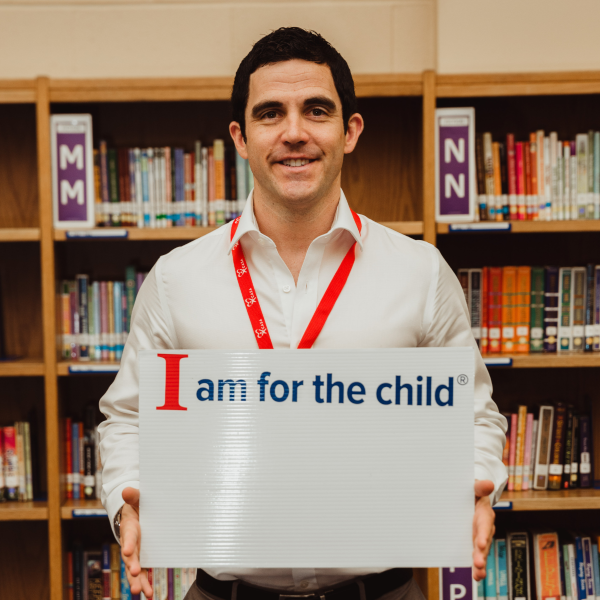Being in foster care can be overwhelming for children and parents for many reasons. One of those reasons is the sheer number of people working on a case at a time. Each is important to making sure the case follows the legal timeline while working as a team to promote the ultimate goal of reunifying a child with their parent or making sure there is a solid plan in cases where reunification cannot happen.
So, just who is involved in a foster care case besides the child and their parents?
First, you have the DHS caseworker. They are responsible for the everyday safety and well-being of all the children on their caseloads. At the same time, they are responsible for making sure parents are getting the services they need to have their children returned to them. It is a big job that often requires driving kids across the state, finding last minute placements, setting up doctors and therapy appointments, making home visits to foster homes, meeting with parents, drawing up case plans and testifying in court. What don’t they do, really?
The Office of Chief Counsel or OCC is the attorney for the DHS caseworker on the case. They are there to protect the interests of the Department of Human Services. They help the DHS worker communicate with the Judge during court. They are considered the “prosecuting attorney” of the case and file all the initial petitions in order to take the hold on children.
The Attorney Ad Litem is a court appointed attorney specifically assigned to speak on behalf of the best interests of the foster child(ren) they represent. They will often voice the child’s thoughts and opinions during a case. They can call witnesses and file motions on behalf of their client. The Attorney Ad Litem works very closely with the CASA volunteer on the case as their perspectives often align. The Attorney Ad Litem is required by law to present the CASA court report to the judge.
 While the Ad Litem is the attorney for the child, the child also has a Court Appointed Special Advocate (CASA) to speak up for their best interests. Unlike the Ad Litem, the CASA is a volunteer. Often assigned to only one case at a time, the CASA volunteer has the capacity to delve very deeply into the families involved. CASA advocates work closely with the child, DHS, and biological and foster parents to identify and fulfill resource gaps. As an objective third party, they can speak freely to the child’s needs and keep the focus where it should be: on the safety and well-being of the child.
While the Ad Litem is the attorney for the child, the child also has a Court Appointed Special Advocate (CASA) to speak up for their best interests. Unlike the Ad Litem, the CASA is a volunteer. Often assigned to only one case at a time, the CASA volunteer has the capacity to delve very deeply into the families involved. CASA advocates work closely with the child, DHS, and biological and foster parents to identify and fulfill resource gaps. As an objective third party, they can speak freely to the child’s needs and keep the focus where it should be: on the safety and well-being of the child.
Parents always have a right to an attorney in juvenile court proceedings. If parents are under a certain income level, they will be assigned a court appointed attorney. Whether paid for by the parent or by the state, parent counsel is there to guide their client through the child welfare process. While they often encourage parents to complete services, ultimately they are there to protect the parents’ rights and interests in the case even if it goes against the best interest of the children involved.
Foster parents fill a vital role in the life of a foster child. During a difficult time in a child’s life, they can be a safe place to land. They tuck children into bed at night and provide the everyday care for the child. Foster parents can be a support for a child in the actual court room while providing information to the court about any specific needs the child has. In some cases, the foster parents can be a good support system for parents by helping to provide some one on one parenting skills, supervising visits and encouraging healthy interactions. Beyond a foster home, a child may also be placed in a residential facility, group home, or shelter. In those cases, it is the staff of those placements that fill in the foster parent role.
Therapists, teachers, doctors, child care providers, coaches, etc. all play critical roles in providing services and care to a child in foster care. If a child is of Native American descent, tribal representation will also be a valued member of the child welfare team. Because each child’s experience and needs are different, the role they play in any particular case varies. All of these professionals can be called upon, by the court, to provide critical information on a child’s progress, needs, and permanency.
And finally….

The Juvenile Judge. The judge is an elected official who conducts the actual foster care court proceedings. They must be impartial and properly interpret the law. Each attorney presents their case to the judge, CASAs write reports and witnesses testify, but the ultimate outcome of a child’s case is squarely on the shoulders of the judge.
The players are many in child welfare, but the objective is the same. We are grateful to each and every one of our partners for staying committed to the safety and well-being of children in foster care.